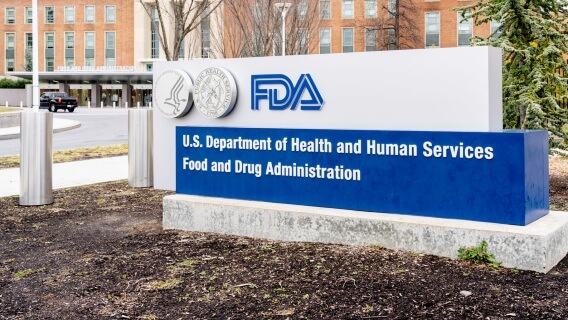Experts Warn: Talc Could Pose a Serious Health Risk
Asbestos Exposure & BansWritten by Travis Rodgers | Edited by Amy Edel

Leading scientists and doctors recently met with officials from the U.S. Food and Drug Administration, participating in the FDA Expert Panel on Talc to talk about the potential danger of this mineral. They discussed talc’s continued use in many foods, medicines and cosmetics and the public health risks this could pose.
The panel noted the known danger from the possibility talc can become contaminated with asbestos when mined. Asbestos is the primary cause of mesothelioma cancer. It’s also strongly associated with ovarian cancer.
But Dr. Joellen Schildkraut from Emory University said even without the presence of asbestos, talc itself could still raise the risk of developing cancer. The experts agreed talc may cause long-term inflammation and cancer. Dr. Schildkraut asked, “If you don’t need to use it, why take a chance?”
Talc Still Found in Many Common Products
Prized for its ability to help make products smooth and prevent others from clumping or sticking together, the soft mineral has been heavily used in consumer products. It’s long been used in makeup and baby powder. And it’s even in the medicine we take and the foods we eat.
Talc is in some of the most-used medicines in the U.S. like Lipitor, Synthroid, Prilosec and Neurontin. Talc is used to keep tablets from sticking together. This helps companies manufacture them more easily.
Talc is also in products like gum, candy, cheese, flour and rice. But food labels aren’t required to list talc as an ingredient or note its presence.
Dr. George Tidmarsh from Stanford University said, “If you’ve ever unwrapped a piece of gum, that white powder – that’s talc.” He said people are often surprised to learn they’re eating food with a substance scientists now say may cause cancer.
Will Experts and Lawsuits Push FDA Decisions About Talc Rules?
Thousands of people have sued companies like Johnson & Johnson because of health problems linked to talc. Many talc lawsuits involve mesothelioma or ovarian cancer. The suits have presented that companies like J&J knew of the risks of asbestos-contaminated talc, but failed to warn the public.
Advice from the FDA Expert Panel on Talc could lead to new rules. Most panel participants agreed companies should stop using talc when safer options are available. FDA officials among the panelists said the agency will keep studying the issue.
FDA Commissioner Martin Makary didn’t outline what steps the federal agency will take next. But he stressed how serious the issue is, especially for children.
Makary said, “I am amazed that for 40 years [talc] has been recognized to be a carcinogen and yet we’re feeding it to our nation’s children. I’m amazed that we scratch our heads asking why we are seeing gastrointestinal cancers go up in young people. And we never stop to think about the existing body of scientific evidence that has been there.”







